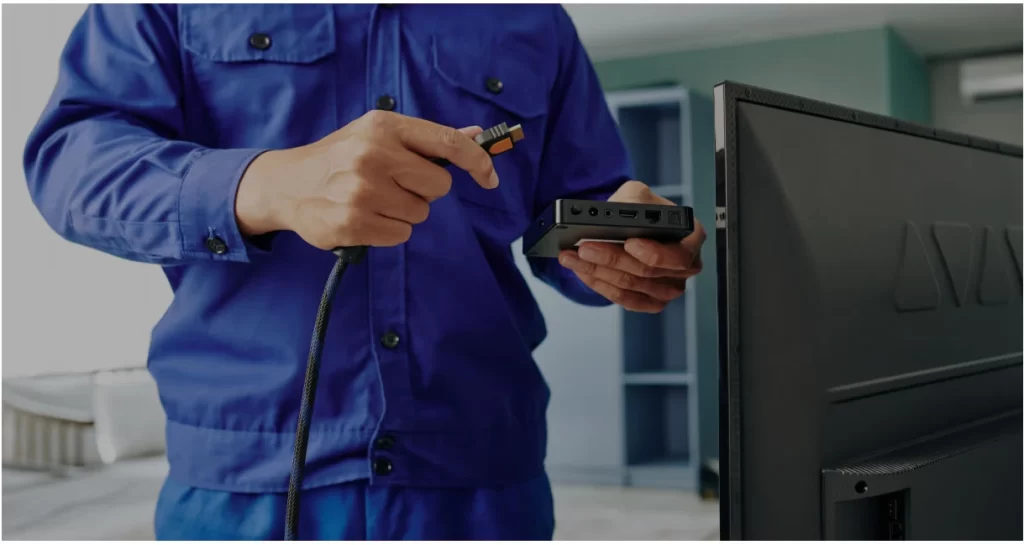Signal Extenders vs. Long HDMI Cables: What’s Best for Your Setup?

HDMI can be a little finicky when it comes to how far you can send a signal without signal loss. So that means often choosing between signal extenders or using long HDMI cables which might have dramatic consequences if you pick the wrong one! Whether you’re building a home theater or trying to upgrade a conference room, knowing which is the better solution is vital to success. And knowing which to pick has a whole lot of different factors like distance, signal quality and equipment compatibility. So let’s get stuck in and help you get up to speed.
Signal Extenders: When and Why You Should Use Them
Signal extenders are going to be the way to go if you have a particularly long run of cable.Signal extenders work by intaking (in this case) an HDMI signal and they then convert that signal into another format that is better suited for long-distance before being restored to an HDMI signal on the receiver end.
There are two primary types:
- Wired extenders, which use CAT, fiber, or coaxial cables
- Wireless extenders, which transmit over Wi-Fi or proprietary RF bands
Signal extenders are ideal for:
- Large conference rooms
- Digital signage
- Remote monitors or projectors in home theaters
Advantages of using a signal extender:
- Maintains stable signal over 50–100+ meters
- Often supports 4K resolution with low latency
- Flexible routing over structured cabling
Disadvantages:
- Higher cost than standard HDMI cable
- May require power adapters or PoE
- More complex installation
So as a quick summary, signal extenders are going to be best used in commercial AV use cases or anything where the cable length is going to be greater than 15m and you don’t mind introducing something other than just an HDMI cable into the mix.
Long HDMI Cables: Performance, Limitations, and Lifespan
One of the most important things to answer in this conversation is: how long can HDMI cables be, and do longer HDMI cables cause lag or extra latency?
The answer to these questions is, unsurprisingly, it depends! To clarify, there are two types of HDMI cables. There are passive HDMI cables and active HDMI cables. First let’s take a look at passive HDMI cables. Passive cables will usually perform optimally up to around 10m. If you get much further than that you can start introducing signal degradation which will cause things like noticeable latency and artifacting. Active HDMI cables on the other hand usually include some sort of built in booster which can help boost the distance by quite a bit (in some cases over 100ft).
So as you can see, how long are HDMI cables able to go really depends on a couple of factors!
- Standard passive: up to 10m, maybe a little further.
- Active cables: up to 15–20m
- Fiber optic HDMI: up to 100m with high stability
That also brings in another question though, how long do HDMI cables last? With proper handling, they can last 5–10 years. But poor build quality or excessive bending can reduce lifespan.
But now that we know a little bit more about HDMI cables let’s take a look at how they stack up as an option for longer distance runs.
Advantages of long HDMI cable runs:
- Lower cost compared to signal extenders
- Simple plug-and-play setup
- Ideal for short-distance applications
Disadvantages:
- Potential for signal loss or lag over long distances
- Bulky and difficult to manage
- Often lack future-proofing for evolving formats
Signal Extenders or Long HDMI Cables: Which One Should You Choose?
Here’s a quick guide to help you choose between signal extenders and long HDMI cables based on your needs:
Use long HDMI cables if:
- Your setup is under 10 meters
- Budget is tight
- You're connecting local displays or devices
Use signal extenders if:
- Distance exceeds 10–15 meters
- You need to transmit to multiple rooms or screens
- You want high-resolution signal stability without lag
Conclusion
So, what’s best for your setup—long HDMI cables or signal extenders? Well as we’ve established, it’s going to depend! If you only have to go 20m as opposed to 150m then a high-quality HDMI cable will be a much better purchase than an extender. On the other hand, if you're dealing with extreme distances, multiple entertainment zones, or need maximum signal integrity, signal extenders are going to be what you want. Each solution has its place. Understanding the trade-offs helps you build a stable, future-proof AV system that performs under pressure.
8.00 a.m. - 5.00 p.m. (PST)
10.00 a.m. - 3.00 p.m. (PST)
(by appointment only)




